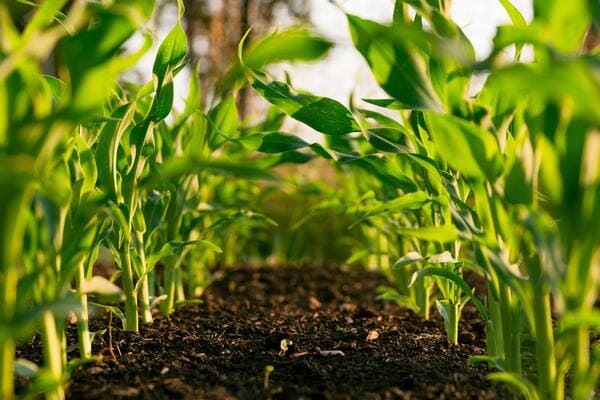3 reasons why organic farming wins over conventional farming!
The share of the net area under organic farming in India has grown from 0.97% (2016) to 2.45% (2022). It will increase with the passing years because of the benefits that organic farming offers.
Now, you might be wondering why organic farming has become the talk of the town in the past few years.
Before we discuss the benefits of organic farming to the overall ecosystem, let us understand the meaning of Organic Farming. It is the process of growing food without chemical fertilizers, pesticides, genetically modified organisms and growth regulators. It also focuses on creating self-sustainable biological systems rather than relying on external inputs.
As a result, the practice of organic farming gives manifold benefits. Along with keeping you healthy, it also takes care of the environment.
Let’s understand it in detail!
Organic farming is free from pesticides
Chemically infused sprays are a big no-no when it comes to organic farming. The use of various other strategies like growing trap crops, selecting crop plant varieties, the timing of planting and harvesting, crop rotation, and irrigation management helps in naturally dealing with pests.
If the need for pesticide arises, natural ingredients are utilized to make an organic pesticide. A mixture of neem, garlic, livestock urine, or other similar item is made. It is then mixed with water and used to eradicate pests. The pesticides used in the conventional farming method contaminate the soil, water and other vegetation.
Moreover, studies have found that chemically infused pesticides can result in cancer, Alzheimer's disease, ADHD and genetic problems for a newborn. They further hold the potential to harm the nervous system, reproductive system, and endocrine system. A single piece of food with pesticides won’t make you sick instantly. When you regularly consume such food, the poisonous chemicals will build up in your body and show an impact in the long term.
Organic farming improves soil quality
Soil fertility is a measure to decide the soil’s ability to sustain satisfactory crop growth. More use of organic matter in the farming process increases soil fertility. Thus, organic farming helps in maintaining good soil conditions. It enhances the water and air holding capacity of the soil. Instead of adding extra nutrients to accelerate growth, organic farming relies on soil organisms and organic residues.
On the other hand, conventional farming resorts to chemical inputs to enhance growth. It might accelerate the growth instantly but deteriorates the quality of the soil in the long term. The chemicals kill the bacteria and organisms that are beneficial for maintaining and enhancing soil fertility. The chemicals further pollute streams, ponds, lakes and wells. Thus, practising organic farming adds up to the quality of soil and ensures that the soil is fertile for further growth of vegetables, fruits and grains in the long term.
Organic farming reduces carbon footprint
Carbon footprint is the amount of greenhouse gases released through any executed actions. 14% of global CO2 emissions come from the agriculture sector. On conducting in-depth research, scientists have been able to quantify the impact on the environment and the stage at which it happens in conventional vs organic farming.
The use of chemical-infused pesticides and fertilizers are the main reason for higher emission. Such pesticides and fertilizers are not fully absorbed by the plants. They eventually break down and are absorbed by the soil, water and air surrounding them. It releases greenhouse gases like nitrous oxide, methane and carbon dioxide into the air.
The process of organic farming avoids the use of any chemicals. This reduces the carbon footprint of the overall farming process and also makes it non-harmful to the surroundings. When you buy organically grown produce, you are reducing your individual carbon footprint and saving the planet.
You might or might not be into farming…
If you are a person who grows their own food or practices farming, this will help you start with organic farming. However, if you are not into farming, this will help you to choose better. Whenever we search for good groceries, there arises a lot of confusion about why organic farming is better. Is it a trend that everybody is following, or does it even help in living a better life?
Well, the myths have been busted here, and now you know why exactly you should go for wholesome and organically grown food. Awenest brings to you a wonderful collection of organic dals, pulses, flours and grains. Feel free to check out our healthy and eco-friendly collection of organic foods. Our healthy food collection comes from some of the best brands including conscious food, praakritik, true farms, two brothers farms and many more.
Farming is an integral part of our lives, no matter how far we live from villages. The whole ecosystem is deeply connected. Every choice we make in our lives has the power to impact the entire ecosystem. Be organic and buy organic.
Photo by Steven Weeks on Unsplash
Author-Brinda Shah is a freelance content writer. she is a ca turned into a writer who loves to read, write & meditate. you can connect with her on linkedin and on instagram






